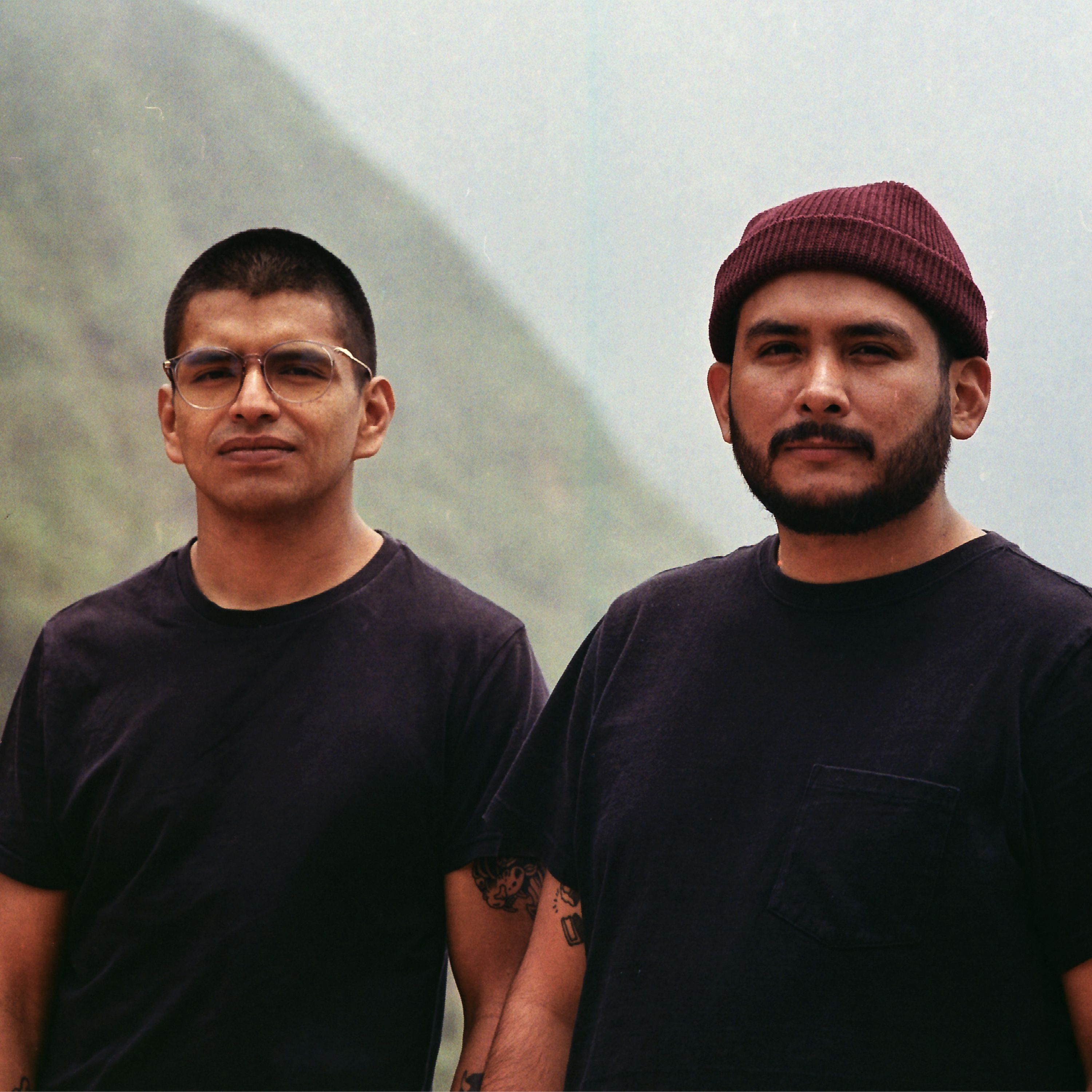Cruzloma


Hailing from Quito, Ecuador, Cruzloma was originally a collective of various artists, formed in 2014 to explore the sound possibilities of fusing traditional music with contemporary electronic beats. After several years and changes of perspective, in 2018 Felipe Romo and Sergio Castro decided to consolidate the project as a duo.
Before their explorations with Cruzloma, Felipe and Sergio had been making music together for twelve years, playing in reggae and dub bands and their stoner rock band Fat Chancho, who released just the one eponymous record in 2020. But the call to fuse elements closer to their roots was stronger, and living in a city like Quito, loaded with so much syncretism and symbology, led them to form this duo to breathe life into a project which, in their own words, is “ceremonial electronic music that brings together the thoughts of legends and myths of creation.” This is aligned with the idea that, despite colonization, indigenous cultures have protected their beliefs through music, dance and by adapting Catholic symbology, generating this syncretism characteristic of Latin America where virgins and mountains are quasi synonyms. “Cruzloma wants to translate this syncretism from electronic music to a place that is technologically and culturally contemporary,” say the duo.
Collaborations with other artists have been essential to their music, including the group Humazapas and some incredible El Chota percussionists from the Imbabura province. The EP’s rhythmic roots are Afro-Ecuadorian percussion like bambuco, from Esmeraldas on the north coast of Ecuador, and bomba del chota and san juanito, from the north of Imbabura province.
“Cruzloma’s need to fuse traditional and contemporary music reflects this overwhelming search to innovate in our musical identity that, although it can be thought of as something from the present day, perhaps began in the seventies with the exploration by characters like Mesías Maiguashca,” they say. They promote traditional rhythms in contemporary styles as a process of reinvention and self-discovery, bringing to light the cultural riches of their home country through rhythms that include musical styles that lack folkloric—in this case Andean—sonorities.
Buy / Order 'Mitos & Ritos'